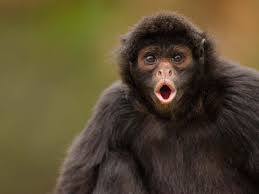Stamp: Baby Jungle - Monkey (Cinderellas 2012)
Baby Jungle - Monkey (Cinderellas 2012)
01 January (Cinderellas ) within release Zambia : Barotseland goes into circulation Stamp Baby Jungle - Monkey face value 50 No Face Value
| Stamp Baby Jungle - Monkey in catalogues | |
|---|---|
| Colnect codes: | Col: ZM-BR 2012-09/5 |
Stamp is square format.
Cinderella stamp issued by the so-called "Africa Federation of Free States". Denomination is fictitious.Also in the issue Zambia : Barotseland:
- Mini Sheet - Antelope face value 6*50;
- Stamp - Antelope face value 50;
- Mini Sheet - Baby Jungle face value 6*50;
- Stamp - Baby Jungle - Elephant face value 50;
- Stamp - Baby Jungle - Giraffe face value 50;
- Stamp - Baby Jungle - Giraffe face value 50;
- Stamp - Baby Jungle - Lion face value 50;
- Stamp - Baby Jungle - Monkey face value 50;
- Stamp - Baby Jungle - Snake face value 50;
- Mini Sheet - Elephants face value 6*50;
- Stamp - Elephants face value 50;
- Mini Sheet - Giraffe face value 6*20;
- Stamp - Giraffe face value 20;
- Stamp - Hippopotamus face value 25;
- Mini Sheet - Hippopotamus face value 10*25;
- Mini Sheet - Impala face value 8*50;
- Stamp - Impala face value 50;
- Mini Sheet - Leopard face value 6*50;
- Stamp - Leopard face value 50;
- Mini Sheet - Oryx antelope face value 6*50;
- Stamp - Oryx antelope face value 50;
- Mini Sheet - Year of the Dragon face value 6*10;
- Stamp - Year of the Dragon face value 10;
- Mini Sheet - Year of the Dragon face value 6*20;
- Stamp - Year of the Dragon face value 20;
- Mini Sheet - Year of the Dragon face value 6*30;
- Stamp - Year of the Dragon face value 30;
- Mini Sheet - Year of the Dragon face value 6*40;
- Stamp - Year of the Dragon face value 40;
- Mini Sheet - Zebra face value 6*50;
- Stamp - Zebra face value 50;
|
Data entry completed
50%
|
|
|---|---|
| Stamp Baby Jungle - Monkey in digits | |
| Country: | Cinderellas |
| Date: | 2012-01-01 |
| Emission: | Cinderella |
| Format: | Stamp |
| Face Value: | 50 No Face Value |
Stamp Baby Jungle - Monkey it reflects the thematic directions:
Mammals are any vertebrates within the class Mammalia (/məˈmeɪli.ə/ from Latin mamma "breast"), a clade of endothermic amniotes distinguished from reptiles (including birds) by the possession of a neocortex (a region of the brain), hair, three middle ear bones and mammary glands. All female mammals nurse their young with milk, secreted from the mammary glands. Mammals include the largest animals on the planet, the great whales. The basic body type is a terrestrial quadruped, but some mammals are adapted for life at sea, in the air, in trees, underground or on two legs. The largest group of mammals, the placentals, have a placenta, which enables the feeding of the fetus during gestation. Mammals range in size from the 30–40 mm (1.2–1.6 in) bumblebee bat to the 30-meter (98 ft) blue whale. With the exception of the five species of monotreme (egg-laying mammals), all modern mammals give birth to live young. Most mammals, including the six most species-rich orders, belong to the placental group. The largest orders are the rodents, bats and Soricomorpha (shrews and allies). The next three biggest orders, depending on the biological classification scheme used, are the Primates (apes and monkeys), the Cetartiodactyla (whales and even-toed ungulates), and the Carnivora (cats, dogs, seals, and allies).
Monkey is a common name that may refer to most mammals of the infraorder Simiiformes, also known as simians. Traditionally, all animals in the group now known as simians are counted as monkeys except the apes. Thus monkeys, in that sense, constitute an incomplete paraphyletic grouping; however, in the broader sense based on cladistics, apes (Hominoidea) are also included, making the terms monkeys and simians synonyms in regard to their scope.



